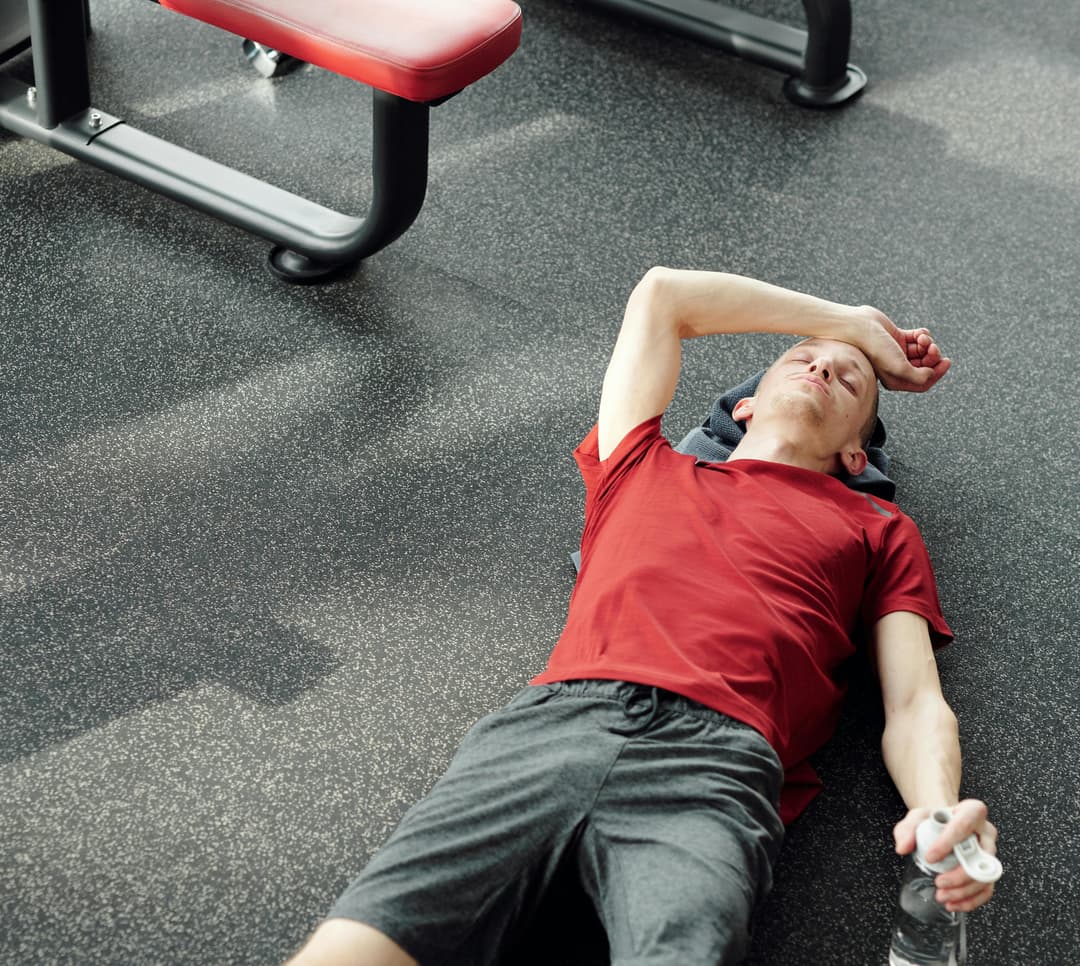
Are You Underfueling? How Athletes Can Spot the Warning Signs


Article reviewed by Bethany Chapman
Article reviewed by Bethany Chapman
Board Certified Specialist in Sports Dietetics
Sports dietitian and mind body eating coach who works with professional athletes.
Proper nutrition is the foundation of athletic performance and overall health, but many athletes unknowingly struggle with under-fueling.
Whether it's due to busy schedules, limited food options, or pressure to maintain a certain body type, under-fueling can have serious consequences for physical performance, recovery, and long-term well-being.
Bethany Chapman, a sports dietitian and founder of PNW Nutrition LLC, works with professional sports teams and individual athletes to optimize their nutrition. She has extensive experience addressing the challenges of under-fueling and its impact on performance and shared what underfueling is, how to recognize it, and how to address it.
What is Under-Fueling?
Under-fueling occurs when an athlete consumes insufficient nutrients to meet the demands of their training, recovery, and overall health.
It can happen unintentionally due to logistical challenges or intentionally as a result of body image pressures or misguided beliefs about nutrition. Regardless of the cause, under-fueling is a widespread problem that can affect athletes at every level, from high school to professional sports.
Unintentional Under-Fueling
Unintentional under-fueling often results from the fast-paced and demanding schedules that athletes face. "High school and college athletes are especially prone to this," explains Bethany. "They're bouncing from class to class, then heading straight to training, often skipping meals or not having enough time to eat. Nutrition just gets left behind."
The lack of planning, limited access to nourishing food, and time constraints all contribute to these gaps in fueling. For example, a student-athlete might skip breakfast to make it to an early practice, grab a quick snack instead of a proper lunch, and then head into an intense evening workout without adequate energy stores. Over time, these habits can lead to a significant energy deficit that impacts both performance and health.
Intentional Under-Fueling
Intentional under-fueling, on the other hand, is often driven by external pressures or internal perceptions about body image and food. Athletes participating in weight-focused sports, such as gymnastics, boxing, or wrestling, may feel pressure to maintain a specific body type or weight range.
A strict focus on "clean eating" can also lead to under-fueling. "Athletes can become overly rigid, trying to eat only the 'right' foods," says Bethany. "They might focus on things like eating tons of vegetables but not get enough carbohydrates or protein, which are critical for fueling muscles and performance." This rigidity can lead to imbalances in the diet, such as consuming excessive fiber, which Bethany notes can cause gut upset and prevent athletes from meeting their energy needs. It can also lead athletes to skip meals when there aren't any "good" options available.
Both types of under-fueling—intentional and unintentional—can have serious consequences. In the short term, athletes may experience fatigue, decreased performance, and delayed recovery. Over time, the effects can become more severe, including hormonal imbalances, menstrual irregularities, stress fractures, and even long-term impacts on bone health. "Under-fueling doesn't just affect how you feel during a workout," Bethany emphasizes. "It impacts your entire body's ability to recover, adapt, and stay healthy."
Recognizing the signs of under-fueling and addressing its root causes are critical for athletes to maintain their health and maximize their potential. Whether it's improving planning and food access or challenging harmful beliefs about food and body image, taking proactive steps to meet nutritional needs is essential for long-term well-being and athletic success.
Warning Signs of Under-Fueling
How can you know if you're underfueling? Bethany shares several signs to look for:
Menstrual Irregularities
For female athletes, a lost or irregular menstrual cycle is one of the clearest indicators of under-fueling. "Losing your menstrual cycle is often seen as a 'badge of honor' or a convenient thing," Bethany Chapman explains. "But it's actually a sign that the body isn't functioning properly due to insufficient energy intake."
Frequent Injuries and Illness
Stress fractures, persistent injuries, and delayed recovery are common in under-fueled athletes. Additionally, constant illnesses or poor immunity can signal that the body isn't getting the nutrients it needs to stay healthy.
Performance Plateaus or Declines
Athletes who are under-fueling may struggle to build muscle, improve their performance, or recover adequately between training sessions. "If muscle soreness lingers for days or you're not progressing in your performance markers, it could be a sign of energy deficiency," says Bethany.
Weight Gain or Loss
It's intuitive to many athletes that losing weight could be related to under-fueling. Paradoxically, under-fueling can also make it harder to lose weight, as the body shifts into survival mode and conserves energy.
Physical and Lab Indicators
Bloodwork showing deficiencies in iron, vitamin D, or other nutrients can be a red flag. Additionally, bone health issues, such as osteoporosis or osteopenia, may indicate prolonged under-fueling. Bone health concerns are often identified using a DEXA scan.
Low Energy and Fatigue
Feeling constantly tired, sleeping excessively, or lacking energy for daily activities or training sessions can also point to inadequate nutrition.
Recognizing these warning signs is critical for athletes to avoid the detrimental effects of under-fueling. Addressing these issues promptly can help athletes regain their health and optimize their performance.
Addressing and Avoiding Under-Fueling
Bethany shares key strategies to ensure proper fueling:
Prioritize Regular Meals and Snacks
Athletes should aim to eat 5-7 meals or snacks daily, especially those with demanding schedules. "High school and college athletes often need to get creative," says Bethany Chapman. "Mini fridges, kitchenettes, and portable snacks can help fill in the gaps when campus food options or time constraints are barriers."
Focus on Balanced Nutrition
A variety of nutrient-dense foods is essential to meet energy demands. This includes making sure you are getting enough carbohydrates, protein, and healthy fats.
Be Flexible with Food Choices
Avoid rigid thinking about "clean eating" or specific food rules. "Something is better than nothing," Bethany explains. "Athletes need to focus on fueling their bodies, even if the food isn't perfectly aligned with their preferences or guidelines."
Normalize Conversations About Health
Open discussions around topics like menstrual cycles, energy levels, and recovery are key to identifying potential issues early. "Parents and coaches should normalize these conversations," Bethany advises. "For female athletes, losing a menstrual cycle isn't normal—it's a sign of under-fueling and should be addressed."
Monitor for Red Flags
Look for signs like low energy, frequent injuries, or delayed recovery. Regular check-ups and bloodwork can also help identify nutrient deficiencies or other health concerns.
Seek Professional Support
Consulting a sports nutritionist or dietitian can provide personalized guidance. "Every athlete is unique, and a sports dietitian can tailor recommendations to their specific schedule and needs," Bethany notes.
Bethany Chapman is a Sports Dietitian & Mind Body Eating Coach and the founder of PNW Nutrition. She works with athletes of all levels, including professional athletes on the Seattle Storm and Seattle Reign FC.